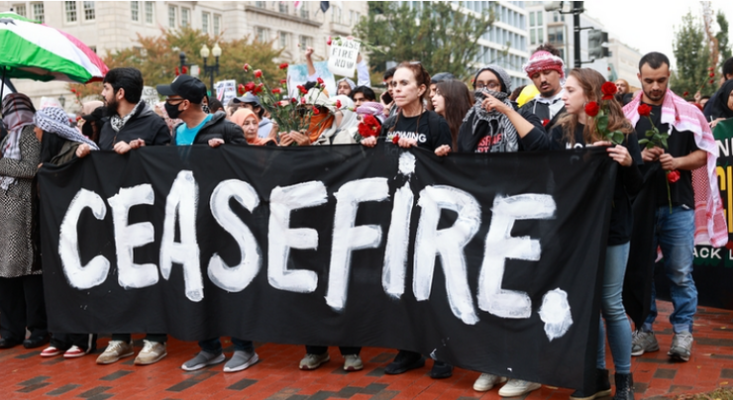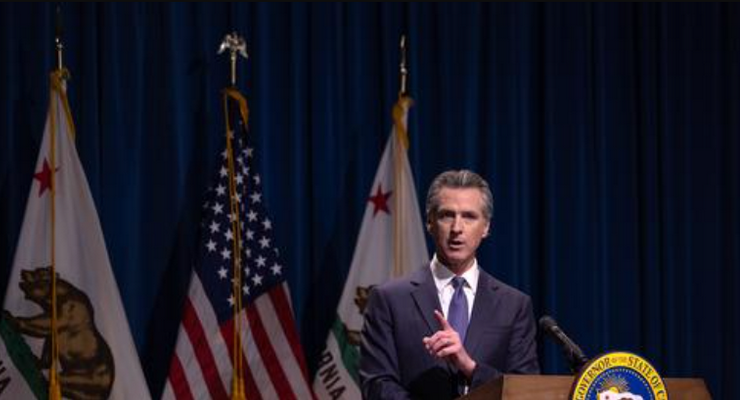
“Could Pasadena be leveled by a massive earthquake? Absolutely,†says Pasadena firefighter David Marquez, who serves on the city’s Urban Search and Rescue Team and experienced the devastation resulting from an 8.8 earthquake in Chile in 2010.
With the rippling effects of two recent earthquakes fresh in Pasadena residents’ minds and a massive 8.2 quake striking Chile on Wednesday, Marquez explained, with the certitude of a man who has seen what destruction a big quake can wreak,  what Pasadena might look like after a major temblor.
“It was very eye opening to just see the potential that Mother Nature has of leveling the entire city,†Marquez said.
Partnering with a medical rescue team for Paul Walker’s “Reach Out World Wide†to go to Chile in the last major earthquake, Marquez experienced firsthand the horrors and unexpected difficult circumstances that arise in disasters like major earthquakes.
“The reality is it could be weeks before you see anyone. It could take a week just to clear roads alone and to get you any kind of assistance. There could be so many variables from lighting, from loss of all power, loss of all water, losing grocery stores,†Marquez said.

One of the biggest messages he brought back to Pasadena after his 2010 Chile trip is to focus on being self-sufficient for much longer than just a 72-hour period.
“Just to get to the work that needs to be done, the life safety issues, the fire suppression issues, the medical issues, the rescue issues, so many basic things have to take place. Things like road closures, things like addressing down tower lines, re-energizing power lines, establishing communication systems, maintaining law enforcement, maintaining civil order – it could very well happen in Pasadena,†Marquez said.
Marquez advises to plan for the “absolute, horrific, almost apocalyptic scenario†when putting together earthquake plans.
Questions that should be answered include: What would be the operated housing options should our home be completed leveled and gone? Do we have the ability to have a roof over our heads? Do we have alternative power supply systems? Do we have a decontamination kit for water like iodine tablets or chlorine tablets?
“In a true disaster you’re going to be completely overwhelmed and that was something that we had never seen before and have been so up close to was literally being in the epicenter of that earthquake and tsunami combination and just see everything destroyed—everything,†Marquez said.
Marquez suggests anticipating being without food, water or any kind of external support for at least a week to two weeks versus a three-day period.
“I try to stress to people to remove their previous conceptions held about what an earthquake can be about—a couple of cracks on the walls, about maybe good shakes and some minor damage—and replace that with an absolute worst case scenario. From there, I suggest they redevelop their plan,†Marquez said.
Born and raised in Southern California, Marquez was part of the first six-person relief team that went to Haiti in January of 2010 after the devastating earthquake. From that trip with actor Paul Walker, a nonprofit made up of skilled volunteers was born.
Reach Out World Wide is a network of committed professionals with first responder skill-set, including project management, logistics, heavy equipment operation, EMT, paramedic, firefighting, and healthcare, who volunteer their expertise when disasters strike on a worldwide basis. The response team arrives quickly, clears access, and provides basic necessities and medical assistance to ease the survivors’ pain and bringing hope in the bleakest of circumstances.
“People hear about it—doctors, nurses, firefighters—and they really want to be a part of it, not for compensation, but for the same reasons that I have, that they’re able to apply their professional skill sets to people in the most dire situations and really walk away from that knowing that we did something, we really helped out, we really made a difference,†Marquez said.
At least one Pasadena firefighter has attended almost every relief effort since the initial trip, including Katrina, the Philippines, Indonesia after the tsunami, and Oklahoma and Alabama after tornado storms there.
“We’re using all of our own time to do these. As soon as these events go down, there’s an immediate request by the team for basically who’s available and who can go on this right now. Last year for example, to go to the Philippines, I used three shifts or four shifts of my actual vacation,†Marquez said.
The first responders will treat everything from elderly to the very small children for infections, trauma, diarrhea, water-borne illnesses, and more.
“We’ve been able to talk to the community and the public emergency response train that we deliver, and we’re able to bring lots of real world experience to people and helping them prepare for their disasters a little bit better,†Marquez said.
Successful emergency preparedness means having enough food, water, medicine, first aid supplies, hygiene products, flashlights, batteries, clothing and other supplies for each person and pet in your household to last a minimum of three days to week, or longer, if possible.
It is important to remember that in the event of a widespread disaster or emergency, police and fire officials throughout the region may become quickly overwhelmed with 9-1-1 calls and you and your neighbors may be on your own, without assistance from first responders for hours or even days.
“We’re well overdue for a large earthquake. Now is the time to build a disaster kit for every member and pet in your family, make a family plan on how to communicate and get trained with many free courses the fire dept offers,” City Emergency Planner Lisa Derderian said.
If you are not prepared, start by watching a 12-minute disaster preparedness video posted at www.cityofpasadena.net/Disaster_Preparedness_Video/. Additional disaster preparedness info is available at www.cityofpasadena.net/disaster including an “Emergency Survival Guide†prepared by the County of Los Angeles. Also visit www.PrepareSoCal.org.
Other handy tips and suggestions from the City of Pasadena:
• Make copies of important documents as part of your Go Kits.
• Consider adding some comfort food and a few basic toys or board games for children any children in your group.
• All pets will need their own portable shelters, or crates, in order to be easily transported and kept near you should you have to evacuate.
• Make a habit of keeping your vehicles full of gas or fully charged as gas stations and charging sites might not be available.
• Consider keeping a small amount of cash in your Go Kits as your regular ATM might be unavailable or out of cash and retail stores may not be able to process credit card transactions.
• As you update and rotate supplies, consider increasing your emergency supplies, as appropriate, with things like extra tarps, tools, tents, a portable generator, toilet kits, large trash bags, fire extinguishers, blankets and heat sources.
• Add a solar-based charging system to you inventory to keep your cell phones, tablets or other electronic devices charged during extended power outages.














 0 comments
0 comments


